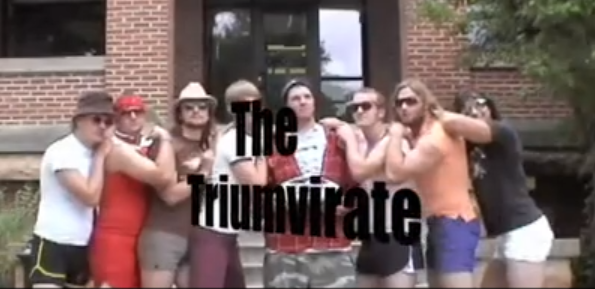Is anything queerer than Easter? Easter is the “queerest” holiday I know. Even as I child, I remember being astounded by the bunny rabbits, eggs, yellow chicks and all the other visual cues for Easter—they were so random, and so odd—and so bright. Easter is a color riot. And then the Easter clothes: stuff that you didn’t wear the rest of the year because it was so…colorful! I’m of course using “queer” in this sense as being contrary to expectations, or somehow far beyond the ordinary—and by that definition Easter was the holiday that mystified me most. But I didn’t let it worry me; I was basically into it for the chocolate. But now years later, I’m a different person, and Easter is the most important day of the year for me—so important, in fact, that every Sunday is a little Easter. The empty tomb is at the very heart of our Christian faith—if Jesus didn’t rise, nothing else matters, and if he did, well…nothing else matters. But, I’m happy to report, Easter is still “queer” to me—it still confounds me, doesn’t fit in any box or category, and has not lost any of its astonishment. (Though I have now reconciled myself to the whole rabbit/egg/pastel thing as a high form of camp—my husband even has an amazing multicolor Madras plaid sport coat he could never wear any other day—and I have come to love the garish thing!) Jesus’ rising from the dead makes no sense. It simply doesn’t conform to the way we know things work. It’s hard to understand—clearly the women at the tomb and the rest of the disciples had a hard time getting their minds around it. And it is precisely in this—in the challenge that the Resurrection presents to our logic and our senses—that the miracle comes forth: a murdered Messiah returns with a message of love and peace; someone who appears behind locked doors and vanishes just as suddenly can walk with friends and eat a meal—and at the same time sees into hearts, makes them burn, and scriptural mysteries suddenly clear in the instant of breaking the bread. None of these are “normal”—none fit in the usual categories of experience.  Queer theology is to me this wonderful irrationality, the dramatic paradox of a God who comes to us as a human—and who lives and dies with us, and then lives again. A human who delights breaking the rules other humans had made to hang on to control, can set us free from the things we fear the most. We, who have been told so many times and so many ways that we are not as God intended, and yet know the deeper truth that we are indeed precisely who God made us to be, and for whom Jesus lived and died and rose again—we know what it means to have a Savior who “queers” everything—even death and life. And we can wear the loudest plaid we want, and wear the frilliest and sparkliest hat, and shout for joy to the God who loves us so extravagantly, wildly—and queerly! Queer theology is to me this wonderful irrationality, the dramatic paradox of a God who comes to us as a human—and who lives and dies with us, and then lives again. A human who delights breaking the rules other humans had made to hang on to control, can set us free from the things we fear the most. We, who have been told so many times and so many ways that we are not as God intended, and yet know the deeper truth that we are indeed precisely who God made us to be, and for whom Jesus lived and died and rose again—we know what it means to have a Savior who “queers” everything—even death and life. And we can wear the loudest plaid we want, and wear the frilliest and sparkliest hat, and shout for joy to the God who loves us so extravagantly, wildly—and queerly! Happy Easter to you all!
Image Description: photo of Proclaimer Guy Erwin in a blessing with young adults: with his words “Queer theology is to me this wonderful irrationality, the dramatic paradox of a God who comes to us as a human—and who lives and dies with us, and then lives again.”- over the image.
| 








